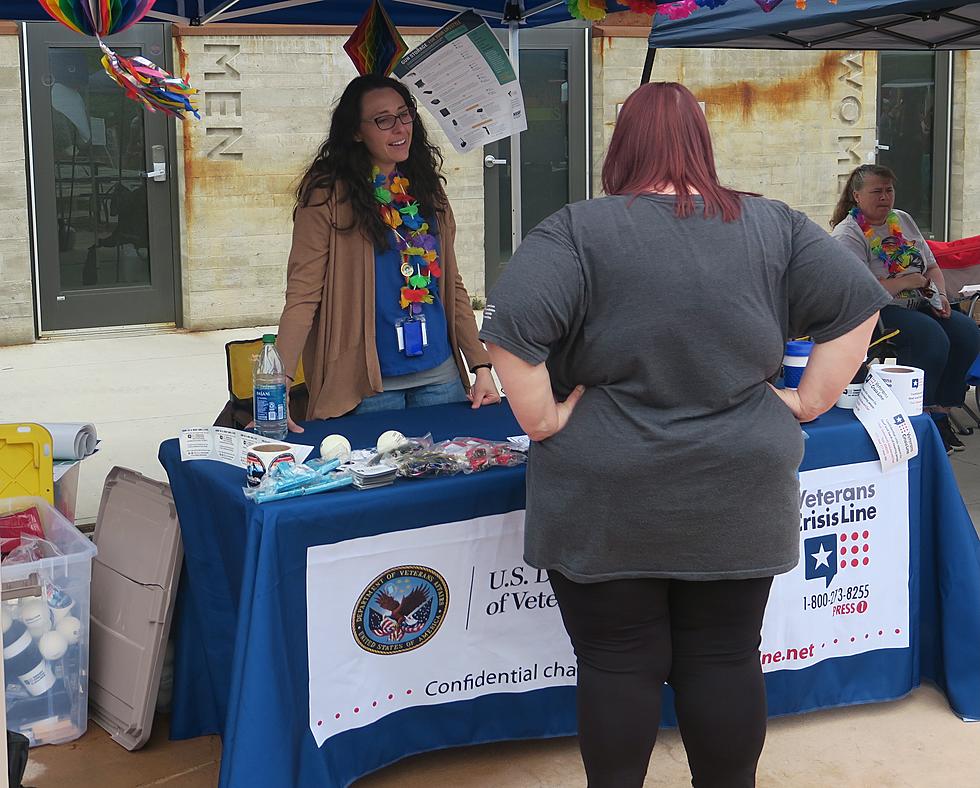
Suicide Survivor: Brain Health Service Cuts Are Fiscally Foolish
Cutting mental health programs is penny-wise, pound-foolish and life-threatening, a rare survivor of a suicide jump from the Golden Gate Bridge said Monday.
In June, Gov. Matt Mead announced $248 million in budget cuts, including $90 million (plus a loss of $41 million in matching federal funds) for services offered by the Department of Health including mental health services.
That makes no fiscal sense, Kevin Hines told a group hosted by the Natrona County Suicide Prevention Task Force. at the McMurry Mansion. Hines and his wife Margaret, and Australians Joe Williams and Lauren Breen, are on a "Hopeshelpsheal Tour" promoting suicide awareness and prevention.
Suicide costs the United States about $93.5 billion a year, according to an Oct. 29, 2015, article in the journal Suicide and Life-Threatening Behavior from the American Association of Suicidology.
Hines said communities and states need to do their own cost-savings analyses to show government leaders the effectiveness of offering preventative measures for suicide and depression.
"But you have to, in my opinion, show that to them after you tell them a story or stories of people who have been there who are surviving with this pain and who are dedicating to changing this country," Hines said.
His story started 16 years ago when he jumped from the Golden Gate Bridge, lived, and started a worldwide movement about suicide awareness.
Suicide is a national epidemic -- the 10th leading cause of death in the United States in 2014 at 12.9 per 100,000 population, according to the U.S. Centers for Disease Control and Prevention. Wyoming's suicide rate is among the highest in the nation at 20.7 per 100,000 population.
Williams and Breen told their own stories, too.
Williams, of the Australian Aborignal people Wiradjuri, New South Wales, played rugby for a decade and was a champion boxer. Whatever he faced on the field or in the ring never compared to the forces he pointed to in his head, he said.
The best way of prevention, Williams said, was to change how people talk to one another.
The Aboriginal culture has been on the Australian continent for 60,000 years. Suicide was unknown until colonization, he said.
In recent decades, one Aboriginal group developed the highest suicide rate in the world, but was able to bring that down to zero by returning to traditional behaviors of speaking to one other, caring and compassion, said Williams, who wore a T-shirt emblazoned with "the enemy within."
Breen lost her 19-year-old brother to suicide in 2008 when she was 21. She wrote "Trust - Surviving the Ripple Effect of Suicide," earned a degree in youth work, founded the Lauren Breen Foundation in Perth, Western Australia, and works with other suicide prevention organizations.
Breen picked up on Williams' comments, saying Australians have their own vulgar version of "cowboy up," meaning the manly thing to do is not talk about suicide. She's seeing a shift in attitudes where people wear T-shirts with "suffer the F-up" to encourage emotional openness.
More From K2 Radio







